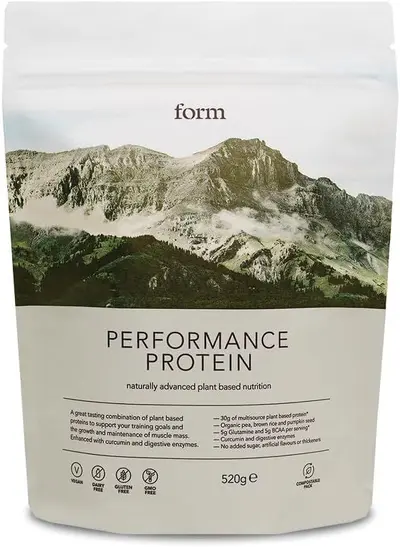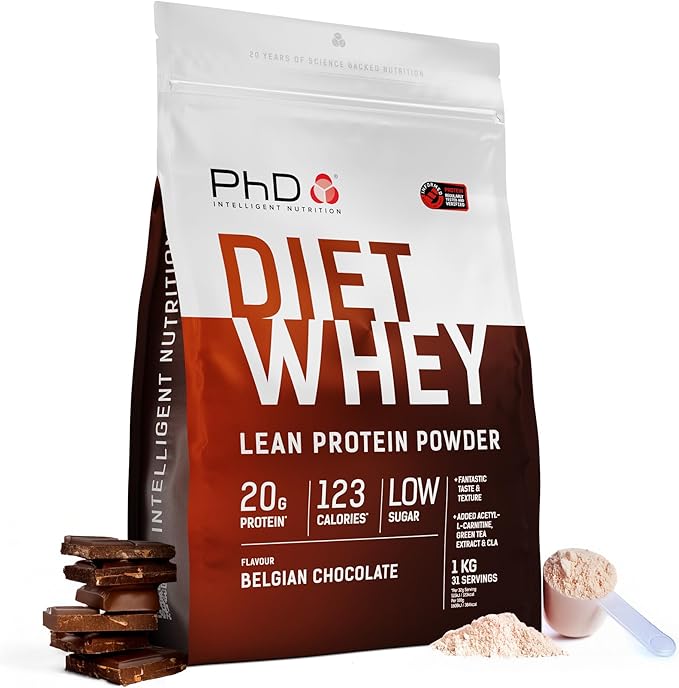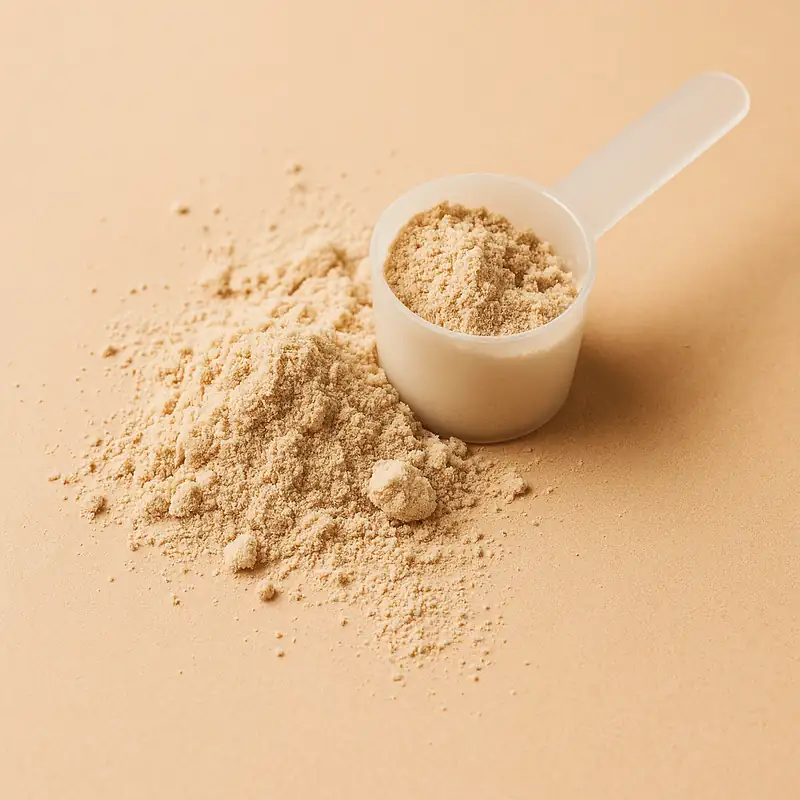Why protein matters more than you think
Wander into any supermarket aisle or overhear chatter outside a gym and you will hear about protein: how much to eat, which powder tastes least like chalk, and whether you need a shake before or after your session. It is easy to dismiss this nutrient as the preserve of bodybuilders, yet protein quietly underpins every movement you make and every tissue you repair. Without enough, your body struggles to maintain muscle, immune function and even mood. With too much, you can crowd out other essential nutrients or waste money on products you do not need. In other words, protein sits at the heart of good nutrition, but it does not have to dominate your life.
The science tells us that most people in the United Kingdom already meet – and often exceed – the basic recommendations of around 0.75 g of protein per kilogram of body weight (that works out to about 56 g a day for the average man and 45 g for the average woman). Active individuals and older adults may need more, yet far fewer people fall short than social media suggests. The real challenge lies not in hitting arbitrary targets but in weaving protein into a balanced way of eating that suits your lifestyle. To do that, it helps to understand the mistakes many of us make without realising.
Misjudging how much you need
One of the biggest protein pitfalls involves quantity. Marketing slogans and fitness influencers can leave you believing that more is always better. In reality, your body can use only so much protein at a time. Studies show that roughly 20 g of high‑quality protein in a sitting is enough to maximise muscle protein synthesis in adults; larger portions are simply oxidised for energy. Older adults do benefit from slightly higher per‑meal doses (around 0.4 g/kg, or about 40 g for a 100 kg person) because the body becomes less responsive with age. That does not translate into unlimited intake, however. Overall daily needs for athletes and very active people tend to fall between 1.2 and 2 g per kilogram, and guidance for older adults ranges from 1 to 1.5 g/kg.
Those numbers are handy benchmarks, not gospel. If you weigh 70 kg and go to the gym three or four times a week, you will likely thrive on 85–110 g of protein daily. A 50 kg sedentary office worker can be perfectly healthy at around 40 g. The key is to think in context: consider your body size, activity level, age and goals before doubling down on steak at every meal. When in doubt, speak to a registered dietitian rather than relying on influencers with little nutrition training.
Packing it all into one meal
Another common error is loading up on a slab of meat at supper while neglecting protein earlier in the day. Many people skip or skimp on breakfast, grab a carbohydrate‑heavy sandwich at lunch, then polish off a giant portion of chicken or mince for dinner. Your body prefers a steadier supply. In a study comparing different distribution patterns, researchers found that eating 20 g of protein every three hours triggered greater muscle protein synthesis than consuming the same amount at longer intervals of 40 g every six hours. Spreading your protein intake across meals and snacks reduces hunger swings, helps preserve muscle and allows your body to put those amino acids to work.
If you habitually reserve protein for evening meals, try adding some to breakfast: eggs with wholegrain toast, Greek yoghurt topped with oats and berries, or a bowl of porridge stirred with a dollop of peanut butter are all quick options. At lunch, incorporate pulses, fish, cheese or tofu into soups, salads and sandwiches. A handful of nuts or edamame beans makes for a convenient mid‑afternoon snack. By the time dinner rolls around, you will have met most of your needs and can enjoy a modest portion of meat or fish alongside vegetables and grains.
Thinking shakes solve everything
Protein powders and bars have exploded in popularity. Supermarket shelves are filled with bottles of ready‑to‑drink shakes, energy balls and brownies promising high protein content. There is nothing inherently wrong with these products; they offer convenience, especially after training or when you are on the move. The trouble arises when they crowd out real food. Most powders and bars are designed to supply protein but little else. They often lack fibre, healthy fats and the micronutrients found in whole foods. Some are loaded with sugars or sweeteners that can upset digestion.
Remember that in the UK we typically consume enough protein from our regular diet. Relying on supplements can lead to unnecessary expense without meaningful benefits. A scoop of protein powder can be useful when you cannot prepare a proper meal – after a hard workout, for example – but it should not become a daily crutch. If you do use powders, look for those with simple ingredient lists. Whey isolates provide a rich source of essential amino acids, particularly leucine, which is a key trigger for muscle building, while plant‑based options made from peas, rice or hemp are good alternatives if you avoid dairy. Check the sugar content and avoid products that add unnecessary fillers.
Neglecting plant proteins
Many people still equate protein with meat, eggs and dairy. Animal sources are excellent providers of complete proteins, but an overreliance on them can crowd out fibre‑rich foods and elevate saturated fat intake. Plant proteins – from beans, lentils and chickpeas to tofu, tempeh, quinoa, nuts and seeds – offer a more sustainable and often cheaper way to meet your needs. The British Nutrition Foundation encourages people to include more pulses because they are low in fat, packed with fibre and rich in vitamins and minerals.
Each plant food has its own amino acid profile, so variety is key. Combining grains and legumes or adding nuts and seeds to meals ensures you obtain all the essential amino acids over the course of a day. For example, swap half of the mince in your Bolognese for lentils, stir roasted chickpeas through salads, or prepare chilli with black beans and kidney beans. Not only does this reduce cost and environmental impact, it introduces new textures and flavours that keep meals interesting. Plant‑based proteins also come packaged with nutrients like iron, magnesium and antioxidants that support overall health.
Ignoring your personal context
The internet is full of broad statements such as “everyone needs two grams of protein per kilogram” or “you must eat protein every three hours”. These sweeping rules fail to account for individual differences. A twenty‑something lifting heavy weights four times a week has different requirements to a sixty‑year‑old who takes gentle walks and gardens. Older adults experience anabolic resistance, meaning their muscles respond less efficiently to dietary protein. They benefit from slightly larger per‑meal doses and often from an overall intake closer to 1–1.5 g/kg. Athletes and those with very high energy expenditures may aim for 1.6–2 g/kg, while most moderately active people can thrive at the lower end of that range.
Pregnancy, breastfeeding, illness and certain medical conditions also change protein needs. If you have kidney disease, for instance, your doctor may recommend limiting protein. Rather than following blanket advice, adjust your intake to reflect your age, body composition, training volume and health status. Spread that protein through the day and pair it with a mix of carbohydrates, healthy fats and vegetables to ensure you are hitting all your nutritional bases.
Skipping breakfast and other timing errors
The way you distribute protein across the day can influence appetite and energy levels. In the rush to get out of the door, many people either skip breakfast entirely or grab a piece of fruit or toast with nothing substantial. Missing the first meal of the day can leave you playing catch‑up later and may lead to overeating at night. A balanced breakfast with around 20 g of protein – two eggs with wholemeal bread, porridge cooked in milk and topped with nuts, or tofu scramble with vegetables – helps keep you satisfied until lunchtime. If you do not have much of an appetite first thing, pack a yoghurt or cottage cheese pot and some nuts to eat mid‑morning.
Beyond breakfast, pay attention to long gaps between meals. If you leave five or six hours between lunch and dinner, a protein‑rich snack – such as hummus with crudités, a slice of wholegrain toast with nut butter, or a handful of roasted chickpeas – can smooth out energy dips. Consistent meal timing supports stable blood sugar levels and prevents the kind of ravenous hunger that leaves you reaching for whatever is convenient.
Chasing protein at the expense of everything else
In the quest to tick off a daily protein goal, it is easy to overlook other vital nutrients. Eating nothing but grilled chicken and egg whites may boost your protein intake, but it deprives you of fibre, complex carbohydrates, vitamins and healthy fats. These nutrients play roles in digestion, heart health, hormone production and more. A truly nourishing meal pairs protein with colourful vegetables, whole grains or starchy vegetables, and a source of healthy fats like olive oil, nuts or seeds.
For example, instead of a plain chicken breast on its own, serve it with roasted sweet potatoes and a salad dressed with olive oil. If you love steak, balance it with steamed green beans and quinoa. When you make a stir‑fry, include a rainbow of vegetables and a handful of cashews alongside your tofu. Such combinations provide a spectrum of micronutrients and fibre that keep your gut happy and your energy levels stable.
Trusting the label without scrutiny
Not all protein products are created equal, and labels can be misleading. A bar advertised as having “20 g of protein” might also contain the same amount of sugar. Powders can vary widely in quality, purity and amino acid profile. Whey concentrates contain varying levels of lactose, whereas isolates are more refined and easier to digest for many people. Plant‑based powders might mix different sources to create a complete amino acid profile, but some rely heavily on sweeteners and flavours to mask earthy notes.
When reading labels, pay attention to serving sizes, sugar and salt content, and ingredient quality. Look for powders with minimal ingredients: the protein itself, perhaps a natural sweetener such as stevia, and not much else. Avoid products that use proprietary blends without disclosing the breakdown of ingredients. Ideally, choose whole foods first and treat supplements as just that – supplementary.
Getting stuck in a rut
Habit is comfortable. Many of us rotate between chicken, tuna and eggs because we know how to cook them and they are easy to find. While there is nothing wrong with favourites, eating the same limited range of proteins day in and day out can lead to nutrient monotony and boredom. Different foods provide different vitamins, minerals and phytonutrients. Variety also makes meals more enjoyable, encouraging consistency.
Challenge yourself to try something new each week. Swap chicken breast for turkey or oily fish such as salmon or mackerel – rich in omega‑3 fatty acids – or explore plant‑based staples like tempeh, seitan and edamame beans. Tinned sardines on toast, smoked mackerel pâté, or a lentil and walnut “meatball” served with pasta are all quick to prepare. Varying your protein sources not only broadens your nutrient intake but also supports sustainable food systems by reducing demand on any single supply chain.
Tips for getting it right
Transforming your approach to protein does not require obsessive tracking or complicated formulas. Think of it as a rhythm: distribute protein evenly across your meals, aiming for roughly 20 g at breakfast, lunch and dinner. If you are older or training intensely, you might stretch that to 30–40 g at each sitting. Between meals, reach for snacks that combine protein with fibre – perhaps a piece of fruit with a handful of nuts or rye crackers with hummus. Variety is your ally; explore plant‑based options and different cuts of meat and fish. Choose foods you enjoy, because pleasure is integral to sustainable eating.
There is also a British cultural element to consider. Traditional dishes like a Sunday roast or full English breakfast can be adapted to meet your needs. Swap fried bacon for grilled back bacon or smoked salmon, use wholemeal bread for toast, and add sautéed mushrooms and tomatoes for extra fibre and vitamins. In summer, throw halloumi and vegetable skewers on the barbecue. In winter, simmer a stew with beans, barley and chunks of lean beef or venison. Supermarkets now stock convenient options like microwaveable lentil pouches, ready‑to‑eat quinoa salads and fortified plant milks. With a little planning, you can put together meals that satisfy both your palate and your protein requirement.
Bringing it all together
Protein is neither a panacea nor a problem; it is simply one part of a broader dietary pattern. Avoiding common mistakes is about striking a balance: know how much you need for your age, size and activity level; spread that intake across the day; favour whole foods over ultra‑processed shakes and bars; embrace the diversity of plant and animal sources; and pay attention to the rest of your plate. When you build meals around these principles, you provide your body with the amino acids it needs while enjoying the variety and pleasure that good food offers.
Above all, treat protein as your friend, not your master. The goal is not to hit a perfect number but to feel energised, satisfied and strong. By making small, thoughtful changes – swapping in beans here, adding a scoop of yoghurt there, portioning your meat sensibly – you will sidestep the common mistakes and pave the way for a diet that supports your long‑term health. For more ideas on incorporating protein into everyday meals, browse the other articles on Protein Pitstop and check out our buying guides for insight into choosing quality products.
Featured Protein Picks

Performance Protein (Vegan)

Diet Whey Protein
Get Your Protein Right
Avoid pitfalls: compare whey and vegan proteins to match your goals.
Compare Top Protein PowdersExplore Vegan Proteins
